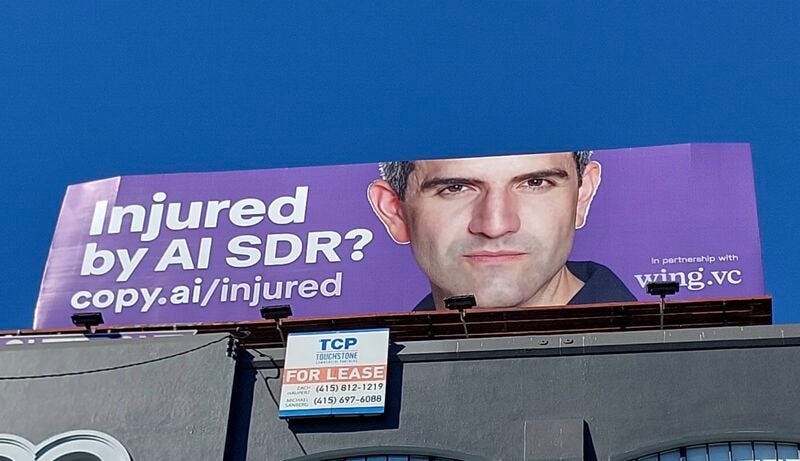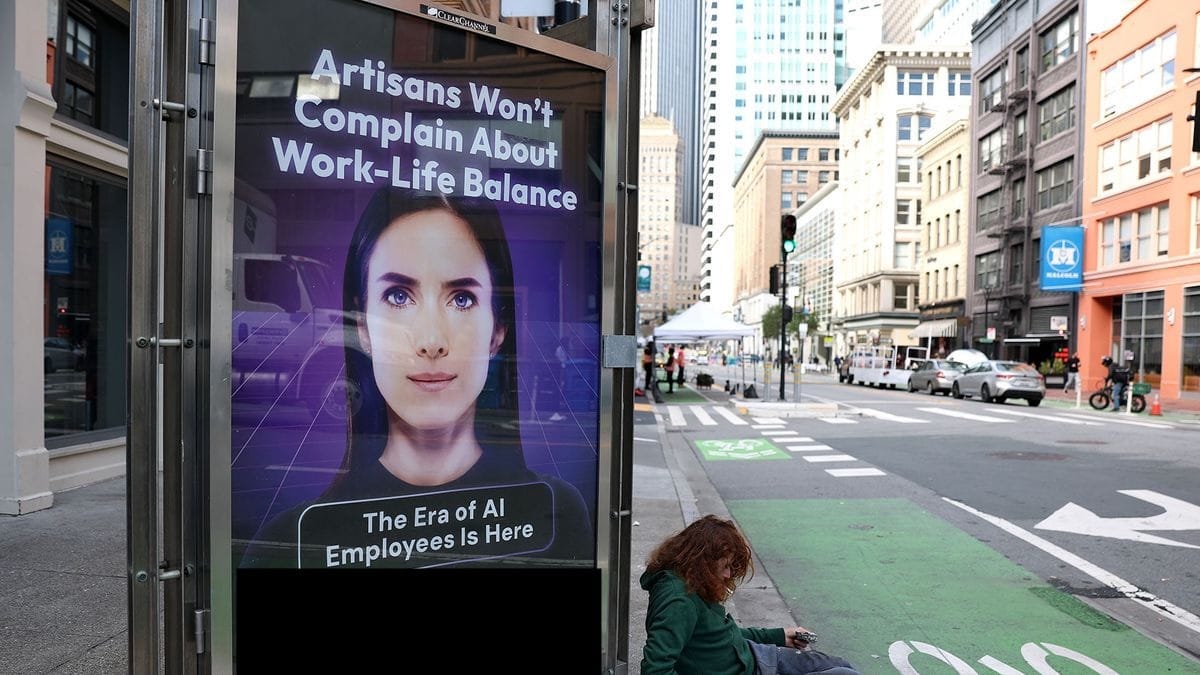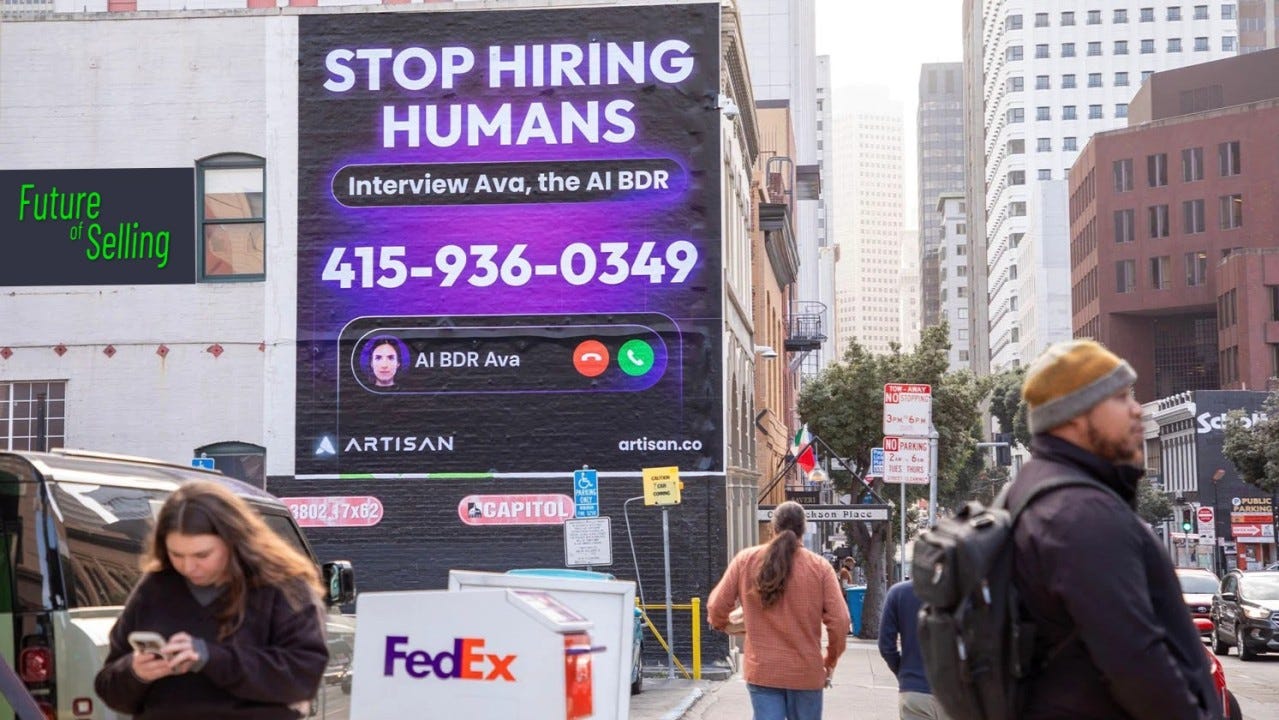When Companies Get Too Big to Care About Brand
Meta and Amazon can afford to ditch their values. Here's why you can't 👀
The other night I found myself re-watching The Matrix Resurrections (yes, the much-maligned fourth film, which I happen to like, as one does at 9:30pm on a Thursday 🤷🏼♀️), and wow—watching a decaying world run by machines while doomscrolling the past few weeks’ tech news hits... different. Black Mirror is getting a little too close to home as major tech companies race to align themselves with anticipated political shifts. More on that below, but first...
A quick heads up: We’re in the last few days to join the next cohort of my latest Maven course, Brand for Growth-Stage Leaders. If you’ve been thinking about leveling up your brand strategy game in 2025, now’s the time—enrollment closes this Sunday. You can sign up here (with a special discount for Substack readers) or join the waitlist for my April cohort.
You’re here because you signed up for one of my resources—my Maven course waitlist, my lightning lesson on brand strategy, or my Notion templates.
If someone sent you this post and you’re not subscribed, join those people learning how to tactically advocate for brand at your company.
What happens when a trillion-dollar company decides its values are optional? A few days ago, Meta announced an end to its DEI programs and explicitly enabled hate speech on their platforms (and changed a lot of other things, too). It’s disturbing from a social perspective—and it’s also a stark example of what happens when companies become too big to care about brand-market fit.
Meta’s new content moderation guidelines explicitly permit users to call LGBTQ people “mentally ill” and removed protections against discriminatory language targeting marginalized groups. This excerpt from their official policy displays the exception within a “do not post” section:

The TikTok “ban” over the weekend plays into this, too. On Meta’s part, this isn’t a subtle shift in corporate policy to adjust for a changing business environment. It’s a deliberate choice to sacrifice long-term brand value for perceived gain. As Meta, and TikTok, race (and compete) to align themselves with the right-ward shift in American politics, we’ll get to watch what happens when companies who think their size shields them from the true cost of compromising its values and the social pact it has made (and, wittingly or not, broken) with its users.
captured it her post yesterday, ICYMI: Social’s Batshit Weekend:The blink-and-you-missed-it shut down may have been good for political pandering but it could hurt TikTok and organic social in the long run.
It was a massive disruption and breach of trust. People feel like they got played and there are a negative vibes online. At a minimum, there’s an acknowledgment that things have changed, with a larger concern that the social landscape has been hijacked by the right wing.

While companies as big as Meta can perhaps afford the brand damage from abandoning their stated values, most companies don’t have this luxury. The average business—whether startup, scale-up, or established player—needs to consistently earn trust and loyalty through clear alignment between stated values and actions, genuine human connection at every touchpoint, and long-term thinking over short-term gains. These fundamentals of brand building aren’t optional nice-to-haves for companies still working to establish themselves in their markets. (Societally, they shouldn’t be either—but that’s another post.)
What’s actually happening here?
As a brand strategist who’s spent years helping companies build sustainable, customer-centric brands, I’m watching this unfold with a mix of professional horror and deep concern about what it means for the future of business and society. This isn’t just about Meta, or even about content moderation.
We’re witnessing a broader trend of companies abandoning their values and basic human decency in favor of short-term positioning. Amazon followed Meta within days, announcing they’re “winding down outdated programs and materials” related to inclusion—while simultaneously scrubbing their public positions page of specific commitments to Black and LGBTQ+ communities. Walmart, the nation’s largest private employer with 1.6 million U.S. workers, led the way months earlier by dismantling their DEI infrastructure, including pulling out of the Human Rights Campaign’s workplace inclusion index and ending a racial equity center established after George Floyd’s murder.
What’s striking isn’t just the timing of these moves, but their comprehensiveness. These aren’t small policy tweaks—they’re wholesale abandonments of previously stated values and commitments. Meta isn’t just ending internal programs; they’re explicitly enabling discrimination on their platforms. Amazon isn’t just “updating” their positions; they’re actively removing language about protecting marginalized groups. Walmart isn’t just changing hiring practices; they’re withdrawing from benchmarks that measure basic workplace inclusion.
As I wrote in “What Does Taste Mean at Work?”, good taste in business means consistently making decisions that demonstrate respect for your audience and show deep empathy for their needs. What we’re seeing now is arguably the opposite—companies making calculated decisions to sacrifice human dignity and previously held (or at least publicly stated) values in hopes of gaining favor with a new administrative and expected regulatory regime.
Every time I see a company make these kinds of moves, I think about what I call brand-market fit—the degree to which a company’s identity and values resonate with and meet the emotional needs of its target market. Meta and others are actively damaging their brand-market fit in ways that could take years to repair. I really wonder who these changes are for, and how they connect directly to business outcomes. Will enabling hate speech really make the company more money, or help attract a new generation of users? (Only 33% of U.S. teens are now on Facebook as of last year, down from 71% of teens in 2014.)
Or are they just too big to fail at this point, morphing into more of a lifestyle business following the preferences of individual executives rather than focusing on delivering user benefit?
Let’s break down why this matters, and why brand leaders should be aware of (if not extremely concerned by) where this trend is heading.
The dehumanization of business
What’s happening around DEI programs isn’t happening in isolation. It’s part of a broader trend I’ve been calling “the dehumanization of business”—where companies are becoming increasingly transactional and losing their humanity across every touchpoint.
Take the hiring process. Remember when tech companies competed to create amazing candidate experiences? Now we’re seeing endless ghosting, marathon interview processes spread across months, and automated rejections that feel more suited to spam folders than relationship-building. Even the basic courtesy of letting candidates know they didn’t get the job seems optional now.
You could call these behaviors a form of “enshittification”—the steady degradation of products and services in pursuit of short-term gains. We see it everywhere:
Shrinkflation in consumer products while profits go up (r/shrinkflation is the subreddit you didn’t know you needed)
Luxury goods are luxurious in price only (“Obscene Prices, Declining Quality: Luxury Is in a Death Spiral” is a must-read, written by a longtime fashion editor who’s seen the arc play out)
Tech platforms degrading free features to force premium upgrades
Social media becoming increasingly hostile to human connection (their raison d’etre)
Customer service disappearing; AI chatbots replacing human interaction, often poorly!!
The common thread seems to be companies forgetting that brands are built on human relationships, not just transactions.
And of course these moves aren’t happening in a vacuum—they coincide with record levels of loneliness, declining trust in institutions, and growing political polarization.
Meta explicitly enabling discrimination and Amazon erasing their commitments to equality are, by changing policies, sending a clear message about what kind of society their leadership wants to create and live in. It doesn’t take much reading between the lines to understand what type of society that is, and who the “winners” will be.
Remember Google’s “Don’t be evil” and Facebook’s original mission to make the world more open and connected? (Now it’s “bring the world closer together.” 💀) Remember Apple’s 1984 commercial? It was groundbreaking, the way they positioned themselves as the human alternative to a dystopian future; to IBM, to faceless corporate computing.
The tech industry, which once prided itself on putting users first and “making the world a better place” seems to have collectively decided that humanity is optional, with the largest companies and most prominent celebrity executives leading the way.
The AI chatbot situation is a particularly tangible summation of this. Remember the wave of AI BDR/SDRs (business/sales development reps) that flooded LinkedIn last year? As a brand marketer, I watched that trend with a mix of fascination and horror. Companies rushed to automate their first human touchpoint with potential customers—the exact moment to make or break a lasting first impression.
Predictably, these offerings are failing so far (I’ve heard some numbers behind the scenes that I can’t share, but let’s say I’m skeptical this first round of companies will deliver for investors)—and triggering spinoffs like Copy.ai’s campaign below. Why? Because people can tell when they’re being treated as data points rather than, well, people. The uncanny valley isn’t an aspirational destination for your brand. The same automation-first thinking that leads companies to believe an AI can replace genuine human connection is what leads them to think they can abandon their values without consequences.

Let’s think about how all this could connect:
Companies automate human interactions and abandon values-driven initiatives in the name of profit-seeking (with the unspoken but understood caveat that the majority of that profit will flow to a very small group of executives and investors), so that
employees feel increasingly disconnected from customers, their work, and each other, which trickles down to
customers experiencing more friction and less genuine connection, and therefore
trust in brands and broader institutions continues to decline, which only means
the loneliness epidemic accelerates, affecting both mental health and productivity, and so
innovation suffers because diverse perspectives and human creativity get pushed aside, meaning
society becomes more polarized as we lose shared spaces for authentic connection
We’re creating a vicious cycle. As companies chase short-term gains, they’re actually making it harder to build sustainable businesses—because humans fundamentally crave connection, meaning, and shared values. Those are the things being stripped away in pursuit of “efficiency” (and political expediency).
It’s short-sighted brand strategy. It’s also a path to mediocrity. The most innovative products and breakthrough services come from diverse, collaborative teams. The companies making these moves today are, are this point, basically explicit in their opposition to a more connected, innovative, and sustainable future.
What do we take away from this?
The brands that build on consistent values and genuine human connection (helping people feel good, look good, do good) are playing the long game, even when shareholders and political winds push for short-term thinking.
The irony is that these companies are big enough that they can probably survive abandoning their values (let alone spending millions trying to rebuild trust later)—but that’s not a business strategy the rest of us should emulate. The most successful brands are built on clear values that connect authentically with their audiences and align with business goals. Companies like Costco (maintaining higher than average wages) and Patagonia (putting environmental values first, even when it costs them) prove that maintaining consistent values while growing is possible. Even in B2B, companies like Notion and Figma show you can scale rapidly while staying true to community-focused values.
When massive tech platforms make decisions based on an individual’s economic or political calculations rather than customer needs, they’re not demonstrating business acumen—they’re showing what happens when companies become too big to face real consequences. For the rest of us building brands that still need to earn trust and loyalty every day, the path forward is clear: Define your values based on your customers’ needs, communicate them clearly, and stick to them consistently.
The fact that Meta and Amazon can afford to damage their brand equity doesn’t mean it’s a smart strategy. It just means they’re big enough to absorb the cost of bad decisions—for now. 🗑️
If you liked what you read, consider:
connecting with me on LinkedIn: Kira Klaas 👩🏼💻
commenting with a question or topic you’d like to see next
sending to a friend 💌 or coworker 💬
P.S. If you reply back over email, it might go to my spam folder. I do check there, but you can also message me on LinkedIn or Substack if you want to make sure I don’t miss your note.










This is immensely gratifying to read. An exceptional and insightful analysis.
Meta’s moves aren’t just corporate policy shifts, they’re signals. Signals to investors, regulators, and an audience that’s either too distracted to notice or too jaded to care. But as history shows, brand erosion doesn’t happen overnight. It’s a slow decay, and once trust is gone, it’s almost impossible to rebuild (just ask MySpace).